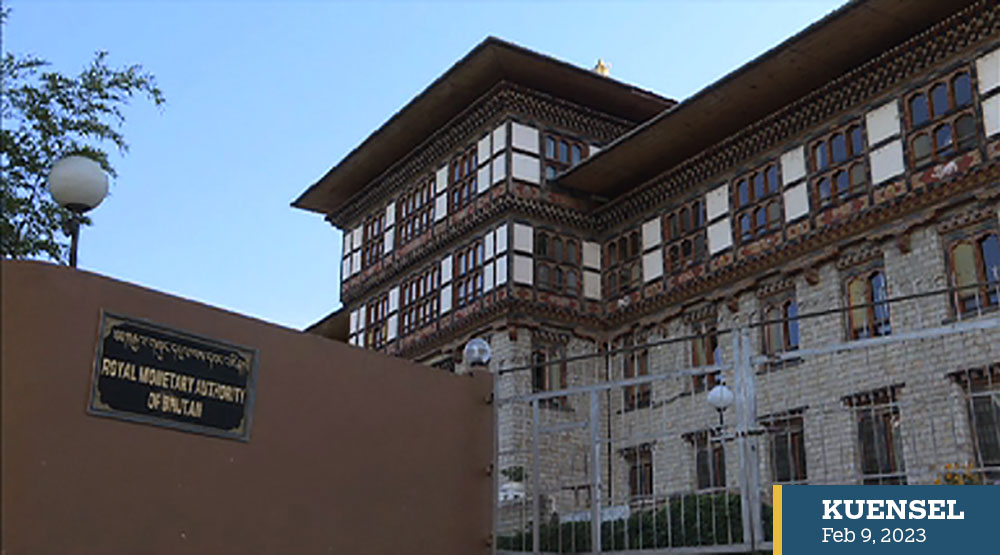Thukten Zangpo
To curb the thriving informal foreign exchange market, the Royal Monetary Authority (RMA), has revised the foreign exchange quota from February 6 this year.
An official from the authority said that their study found an increase in the drawings of convertible currencies (USD) and Indian Rupee (INR) by travellers abroad. “The authority is doubtful of the misuse of the quota.”
From February 6, INR’s monthly private travel quota of INR 25,000 will not be available. Travellers can avail INR 25,000 semi-annually or every six months.
According to the foreign exchange operational guidelines 2022, a private Bhutanese traveller can carry and avail up to a total amount of INR 25,000 per person per month in the form of bank notes or circulation coins when travelling out of Bhutan.
A RMA official said that the travellers, mostly going on pilgrimages, travel once in a year and can avail up to INR 50,000, which is adequate to meet their expenses.
The INR can be exchanged from the central bank’s exchange counters in Thimphu and the central bank’s branch office in Phuentsholing and Mongar after presenting confirmed travel documents and citizenship identity cards.
The authority has also reviewed the USD-annual travel scheme (ATS) modality whereby the residents travelling to third countries are permitted to avail USD 1,000 in cash and USD 2,000 in cards (both international credit and debit cards) per year.
The foreign exchange operational guidelines 2022 stated that the cash limit for USD, a private traveller can get is USD 3,000 per year.
The cash would be received upon the documentation of the confirmed air ticket or visa for travel to a third country.
The RMA’s foreign exchange counters at the Paro International Airport and Bank of Bhutan Limited foreign exchange counters cater to Ngultrum and USD exchange.
The authority approved the Bhutan National Bank Limited to cater the exchange service, a few weeks ago.
The authority also provides separate approval to banks for ATS to the dzongkhags-Samtse, Samdrupjongkhar, and Gelephu, where the RMA’s facilities are not available, but is genuinely a requirement.
Apart from those travelling to India, all are paid in USD or eligible for the USD quota.
An official from RMA said that a traveller avails the entitlement of USD 3,000 per year although he or she does not actually require it.
“Fo example, a person keeps USD 500 and sells the remaining USD 2,500 in the informal market,” he added.
An official also said that a person who books an air ticket avails the USD 3,000 and later, cancels the ticket. “Air ticket and passport was the only document for verification.”
The businessmen, without the entitlement, are found to buy USD at a higher exchange rate than the bank’s selling rate in the informal market.
However, the authority has changed the ATS system to address this misuse.
An official said that a traveller could get the ATS only upon the mandatory confirmation of the air ticket or after he or she receives the boarding pass at the airport.
The authority also plans to integrate the ATS facilities from banks to the airport by shifting the system. The banks are working on it.


